Elli Milan has what it takes - and just what I want. She speaks from a position of experience and success, rather than quoting theories. She and John are actually painting full-time, not as a hobby, but professionally. Which means selling paintings at a profit. She's very clear about her expectations and what she's looking for in a painting- but also explains the reasons behind what she tells us to do. She has a great eye for what is working, what needs adjusting, and she can articulate those thing clearly. And Elli has the grace to critique the hell out of a painting while affirming the person who painted it.
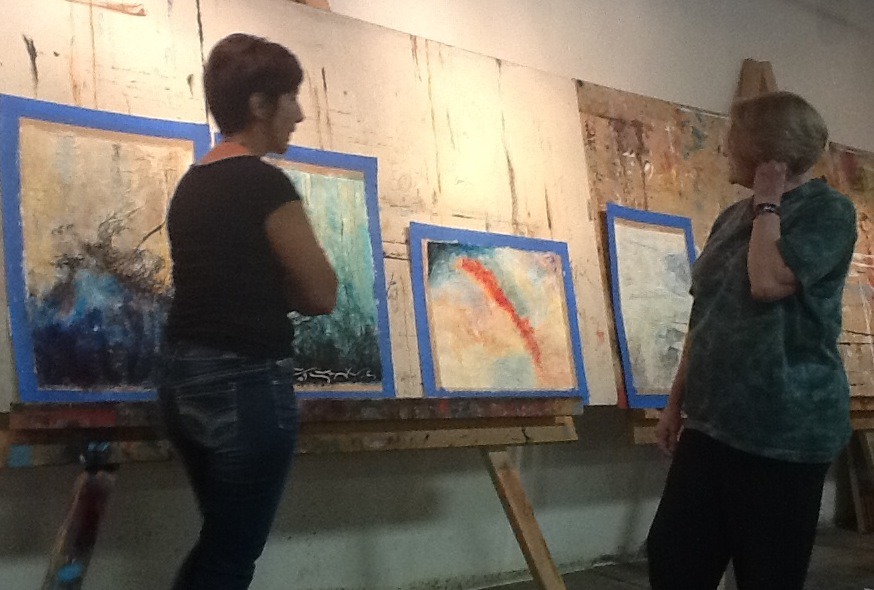
Still, it is much less stressful to observe Elli critiquing one of the other students' work! That's probably why she has us in this big group, listening and looking while each artist gets a turn. Each person puts up the 4 paintings they did this week- still masking-taped around the edges, and frequently unfinished. Then Elli and the artist have a conversation about the work, the process, their goals, what to do next and how to do it.
I noticed that the artists will usually start off with a negative remark about their work, a complaint, or an excuse. But Elli always starts with praise. Intentional and specific praise, not just 'good job!' Comments like: 'This part looks very sophisticated' or 'I like the division of space, the shapes and edges'. So it doesn't feel like a pat on the head, but it does help ease the stress of having your paintings up for critique. Often Elli would pick one or two as most successful, or strongest- and she points out the qualities that are making it work.
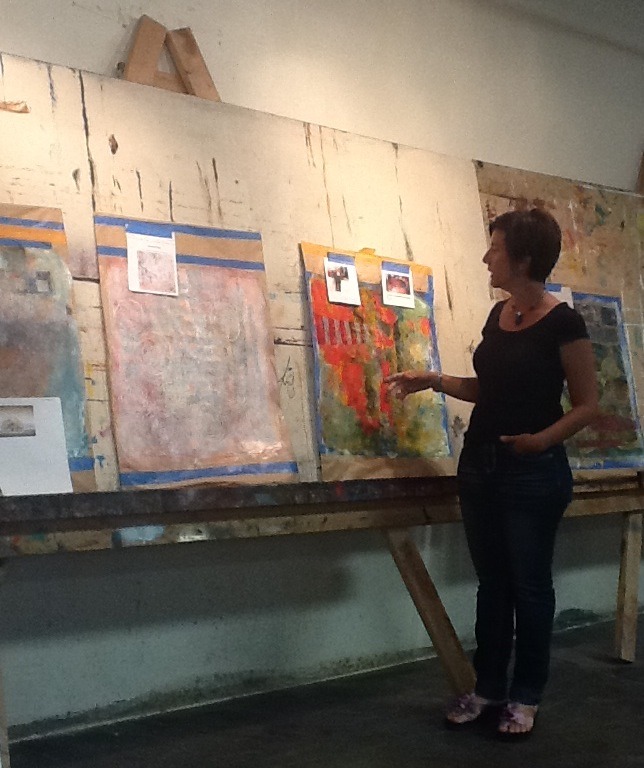
And then comes the hard part. . . What's wrong, what's not working, where the painting is missing the mark. And there are some very specific marks. These are not necessarily Elli's personal style or methods, which I was afraid was going to be the criteria. She's working with each artist's developing style and desires, but pushing towards paintings that are sellable, and processes that are practical.
One essential element - especially in abstracts - is depth. There needs to be a sense of background, or resting space, which is created by blurring edges, softening texture, turning down the color intensity, reducing detail. And of course, there also needs to be parts of the painting that come forward - with stronger color, sharper definition, more texture, detail and contrast. Yet they need to be related and integrated. Some paintings had too much 'foreground' and some had an awkward separation between foreground and background elements.
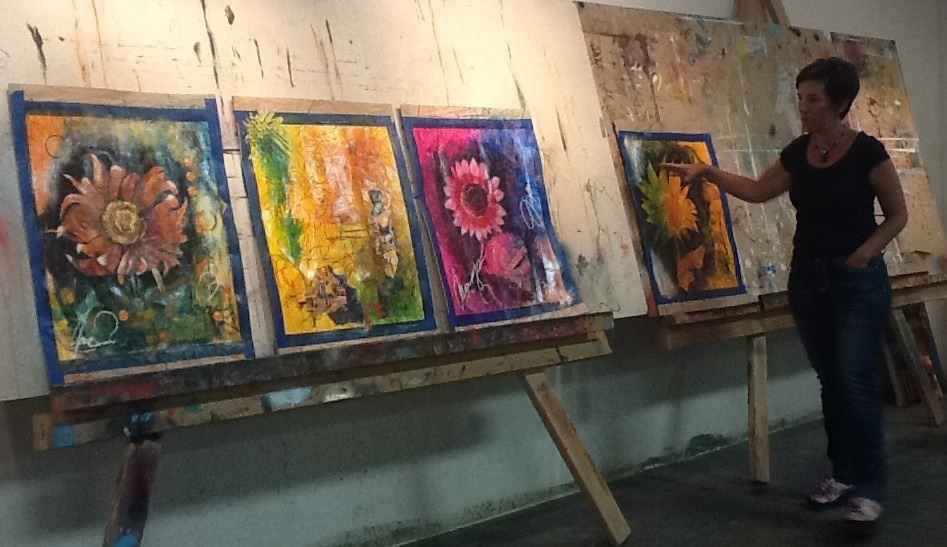
The biggest problem with my paintings is that I am struggling for control, trying to make everything look right, and it shows! My controlled process is killing the spirit of my paintings. Elli pushed me to work in a manner that is unfamiliar and uncomfortable for me- to make a mess and NOT be concerned with details. She made similar comments to another artist, and I am taking these words as my instructions for the week: "loosen up, get messy, freak out!"
The process she told me to follow is not the same as anyone else in the class, but also not anything I have done before. Debra took notes for me while Elli was critiquing me, and this is what I am going to do in my next 4 paintings:
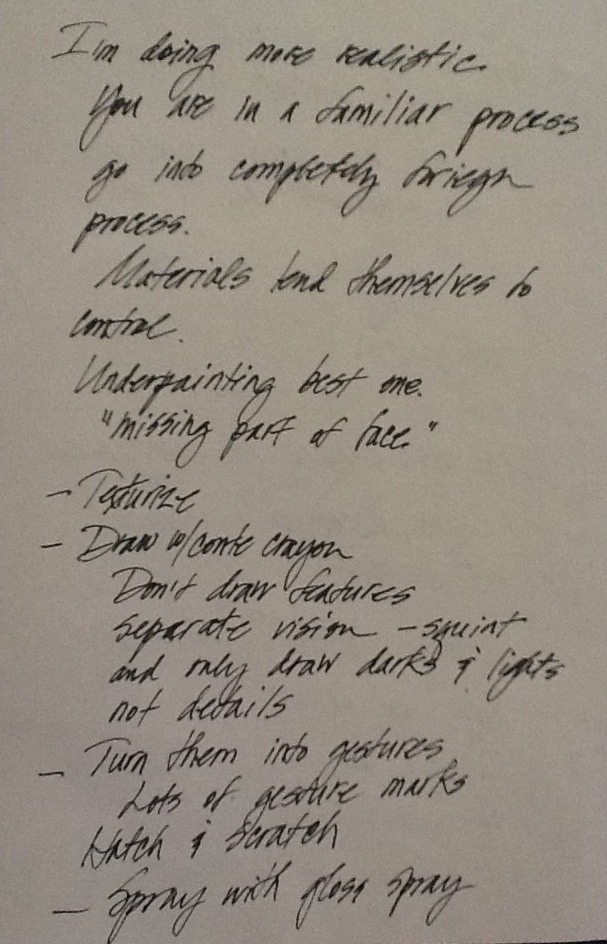
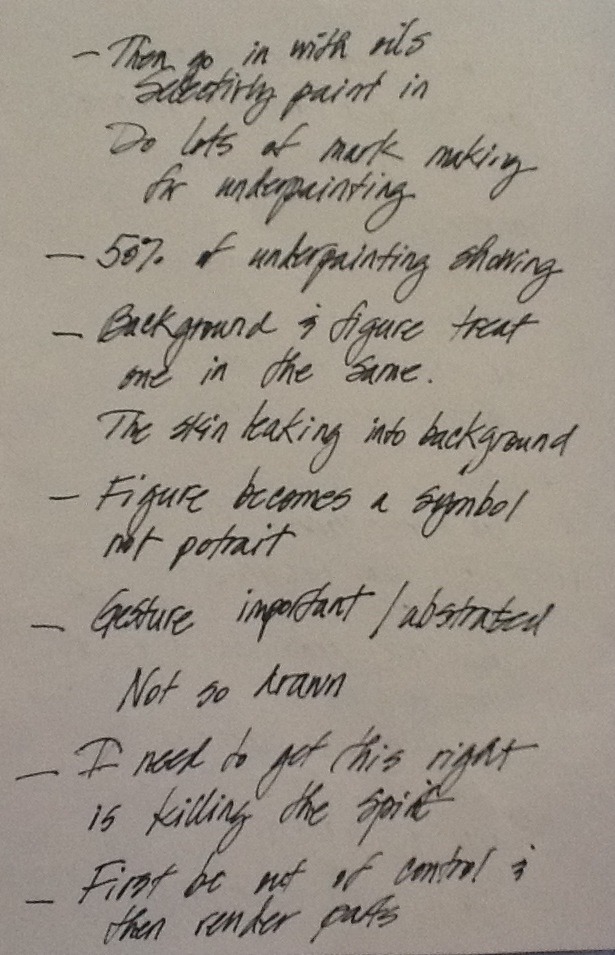
Starting right NOW!!!

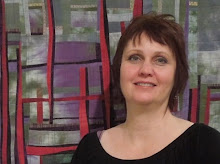
Love this posting and I couldn't agree more. My next step is this class!
ReplyDeleteKathy
Kathy
ReplyDeleteThanks for commenting.
Probably the best thing to do to prepare for this class would be to get into the studio on a regular basis. Just to have some success at getting over that resistance that flares up every time I think, "maybe I will paint for a few hours." I'm still fighting that, and it makes it SO much harder. I'm wishing I already had the disciplined practice, but I am developing it now!